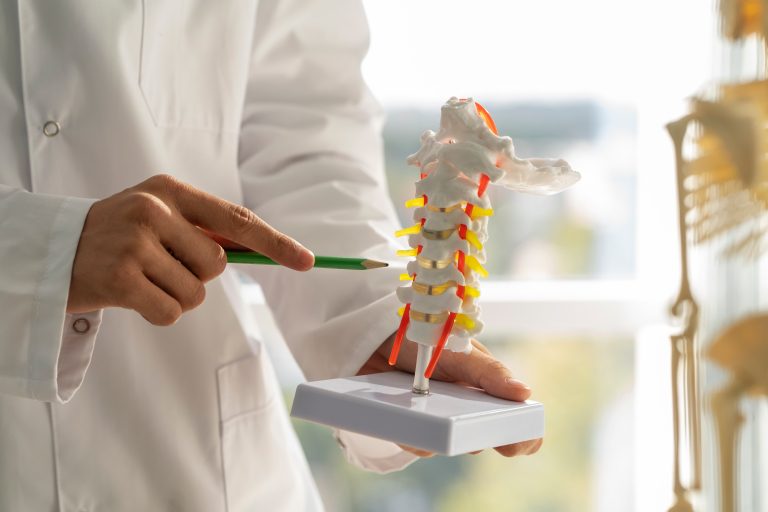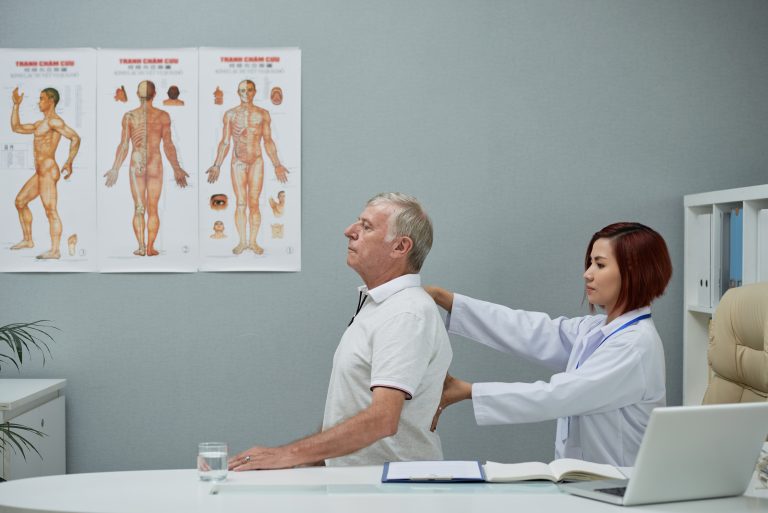Millions of Americans struggle every year with chronic back pain, sciatica, and herniated discs. Two of the most common treatment options are spinal decompression therapy and traditional physical therapy (PT). But which one is better for long-term relief? At Spinal Recovery & Joint Center, we often combine both approaches, depending on each patient’s condition.
Understanding Spinal Decompression
Spinal decompression is a non-surgical treatment that uses a computer-guided decompression table to gently stretch the spine. This stretching reduces pressure on spinal discs and nerves, promoting the flow of oxygen, water, and nutrients to injured areas.
Conditions treated with decompression therapy include:
- Herniated and bulging discs
- Sciatica (leg pain from nerve compression)
- Degenerative disc disease
- Pinched nerves in the neck or lower back
- Spinal stenosis
Many patients report feeling relief within just a few sessions, while long-term programs can significantly reduce the risk of surgery.
📞 Call (586) 573-8100 today to schedule a consultation in Warren, MI.
Understanding Traditional Physical Therapy
Physical therapy focuses on muscle strength, posture correction, and mobility training. Instead of targeting discs, PT improves the overall support structure of the spine. Techniques include:
- Manual therapy and stretching
- Strengthening exercises for core and back muscles
- Balance and stability training
- Posture correction for desk workers
- Rehabilitation after surgery or injuries
Physical therapy is essential for long-term recovery because it prevents recurring injuries and helps patients regain normal function.
Spinal Decompression vs. Physical Therapy: A Side-by-Side Comparison
| Feature | Spinal Decompression Therapy | Traditional Physical Therapy |
|---|---|---|
| Main Goal | Relieve pressure on discs & nerves | Improve muscle strength & mobility |
| Technology | Computerized decompression table | Hands-on therapy, exercise routines |
| Best For | Disc herniation, sciatica, stenosis | Muscle weakness, post-injury rehab |
| Pain Relief | Often noticeable after 3–5 sessions | Gradual, depends on consistency |
| Long-Term Value | Reduces surgery risk | Prevents recurring injuries |
| Location | Available at Spinal Recovery & Joint Center, Warren, MI | Clinics and rehabilitation centers everywhere |
Which Works Better?
The truth is — both therapies have unique benefits. If your pain is caused by a compressed disc or nerve, spinal decompression is often the faster and more effective choice. If your issue is muscle imbalance, poor posture, or recovery after surgery, physical therapy may be better.
The best outcomes usually come from combining both treatments — decompression to relieve pressure, and physical therapy to strengthen and maintain long-term spinal health.
Frequently Asked Questions (FAQ)
Q: Is spinal decompression safe?
A: Yes, it is non-invasive and FDA-cleared. Most patients experience no side effects, only mild soreness similar to post-exercise.
Q: Can I do spinal decompression and physical therapy together?
A: Absolutely. Many patients at our Warren, MI clinic use both treatments for maximum results.
Q: How many decompression sessions will I need?
A: Most treatment plans range from 15–30 sessions, depending on severity.
Q: Is physical therapy enough for a herniated disc?
A: PT helps strengthen muscles, but decompression directly reduces disc pressure. A combined approach is often best.
Why Choose Spinal Recovery & Joint Center in Warren, MI?
At Spinal Recovery & Joint Center, we proudly serve patients across Warren, Detroit, Sterling Heights, and Metro Detroit. Our experienced doctors and therapists specialize in non-surgical spinal decompression, chiropractic care, regenerative medicine, and physical therapy.
- Over 250+ five-star reviews from real patients
- Personalized treatment plans for every condition
- Advanced technology and compassionate care
📞 Call us today at (586) 573-8100 or visit Spinal Recovery & Joint Center to start your recovery journey.




